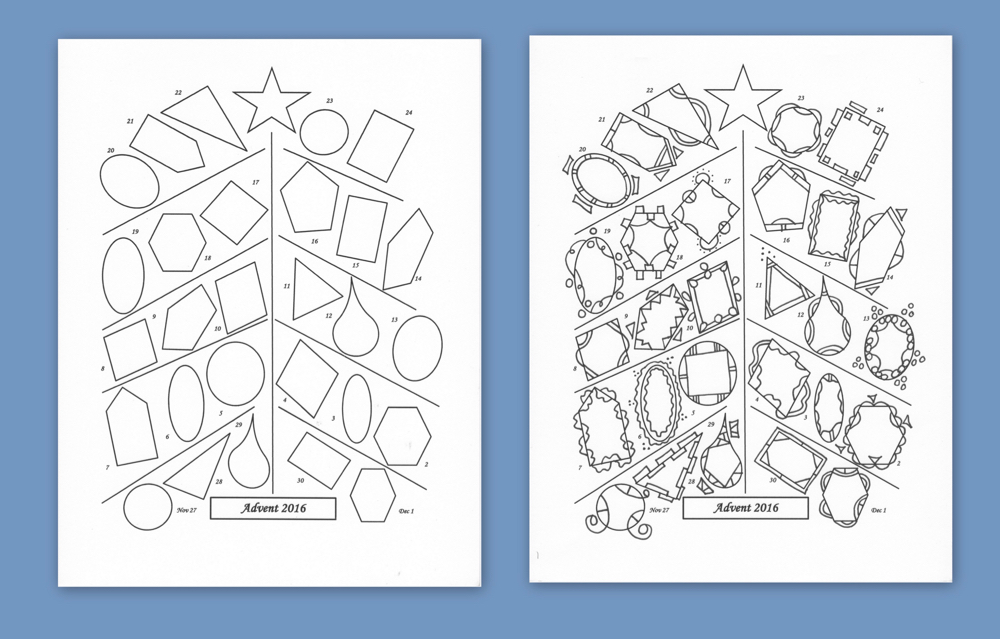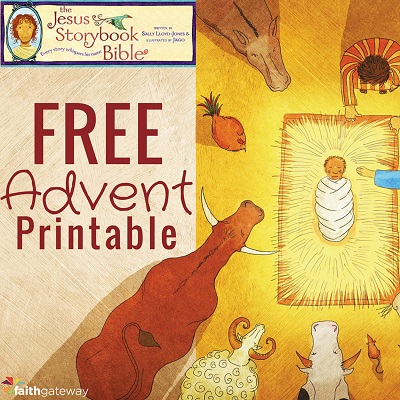Richard Wurmbrand was a pastor who for years helped organize
and sustain an underground church in Romania during the time of the communist
dictatorship there. Wurmbrand paid a heavy price for helping keep the Christian
faith alive in his homeland: he was imprisoned for over fourteen years and
tortured frequently. He wrote a book, In
God’s Underground, where he recounts his life in prison. It was outwardly a
miserable existence, and yet at one point he writes, “Alone in my cell, cold,
hungry and in rags, I danced for joy every night . . . sometimes I was so filled with joy that I felt I would burst if I did not
give it expression.”
When was the last
time you danced for joy . . . in public or in your heart? Have you ever felt
like you would burst if you did not give expression to the joy within you? Have
you felt joy recently at all? On the Third Sunday of Advent, the pink Sunday
which is called Gaudete or Rejoice Sunday, I asked the kids during the
children’s homily what joy is. And one of them said it is when you feel really,
really happy. That is true to a point, except that happiness in our culture is
often tied to circumstances: we feel happy if we have a good meal or a pleasant
visit; we feel happy if we get a raise at work or if our family behaves during
the holidays. But that also means happiness can be pretty fragile:
circumstances can change in a moment. I have been reminded of that in numerous
ways just this week, as I have ministered to those who have been hurt in
serious car accidents or have suddenly fallen very sick. I have seen in the
last few days how feelings of happiness can disappear in a flash when life
takes a tragic turn or we read about some new horror, like the massacre at a
Christmas market in Berlin. Whatever joy is, it must be durable enough to
survive any of that; robust enough to inspire a prisoner to dance alone in the
cold darkness of his cell.
I think that joy is
what we are seeing in the story of the shepherds. Now, it’s easy for us to
romanticize these guys. We envision cute, fluffy sheep and men dressed in
picturesque clothing cradling lambs in their arms under clear starry skies. But
there is nothing romantic about them. They had a dirty job and were considered
to be dirty people, at the very bottom of the socioeconomic ladder. Today they
would be like minimum wage laborers working the graveyard shift because they
have no choice. They were subsistence workers, just barely making it. For most
of us, their circumstances would be decidedly unhappy. And it’s not like they
are treated to a happy show, either. According to the narrative, when the angel
appears to them in glory (and we have no idea what that actually looked like—it’s
not described), there’s obviously nothing pretty about it: the shepherds are
terrified. What finally leads them to utter words of praise, what unleashes
joy, is seeing this child and realizing that God has come close to them.
Put simply, joy is a God thing. It is not an emotional state
we can somehow manufacture, not a feeling we can try to make ourselves feel. It
is rather the direct result of experiencing the closeness of the Holy One. The
Apostle Paul, in his letter to the Galatians, says that joy is a fruit of the
Spirit, something which naturally occurs when we let the Spirit of God live
within us. As such, joy does not depend on our circumstances at all. We can be
rich, healthy, and surrounded by loved ones—and experience joy. We can be
financially strapped, terminally ill, and grieving the loss of loved ones—and
experience joy. The shepherds experienced it while at work in the middle of the
night. Richard Wurmbrand experienced it in the misery of a Communist prison.
You and I can experience it today.
And we don’t need a perfect Christmas for that to happen. We
don’t need to give or receive just the right present. We don’t need alcohol or
mood-enhancing drugs. We only need to open ourselves up to the truth and let it
wash over us: God. Is. Here. The Creator of the Universe is closer to us than
the blood flowing through our veins. Not only has God become human in Jesus,
but the Spirit of Jesus fills our humanity—not as a conqueror but as a lover.
He was born defenseless and vulnerable, and so Christ comes to us now: with
gentleness and kindness, with unending mercy, with a love that is infinitely
patient, infinitely enduring—and thus all-powerful. He can outlast and overcome
anything, even death. That’s what those shepherds encountered that night, a
Presence awesome and compassionate ad beautiful beyond words. Of course they
left praising God in joy: no other response that would suffice.
And if all that all seems like pious claptrap to you, then
please hear me when I say that I am not trying to sound religious at all. Did
you notice? There is no temple and there are no priests in the Christmas story.
There’s not even a hint of organized religion. The truth of the Incarnation,
the Word becoming flesh, is bigger than any church. The reality that God was
born among us cannot be contained within these walls, within any religious
institution, within any nation. Love has come for all of us, from bishops to
atheists, from wealthy Americans to starving refugees. I don’t care how many
times you have been in church in the last year or how many times you have
failed this week or how you feel right now. Love has come for you and for me.
That’s why we’re here: not just because we hope to go to heaven someday, but because
heaven has already come to us. And as C. S. Lewis so rightly observed, joy is
the serious business of heaven.
I want to wish you joy this Christmas, but I don’t need to
wish that for you. Rather I wish for you the simple assurance those shepherds
knew, that Christ has come and God is with us. If you get that, joy will just happen―you
can’t help it, you can’t stop it― and then it truly will be a merry Christmas, no
matter what.









